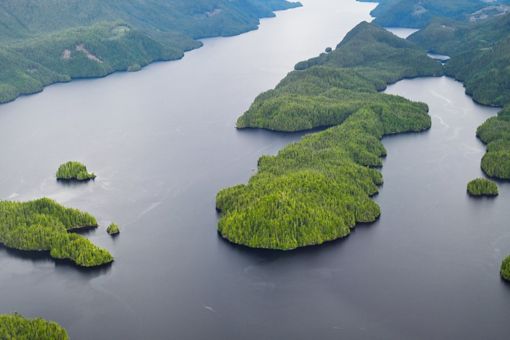The pressure on our natural environment has increased substantially overtime. Halting and preserving nature and its capacity to contribute to sustainable economic growth is a significant challenge, bringing with it significant risks to corporate and financial stability, but also opportunities.
All businesses depend on nature and its services either directly or through their supply chains, and those businesses that are highly reliant on nature are considered 'most at risk' from the consequences of nature degradation and biodiversity loss.
Introducing the TNFD Beta Framework
What boards and executives should know about nature-related risks and opportunities
The Taskforce on Nature-related Financial Disclosures (TNFD) has released its first prototype framework and recommendations on how organizations can report on their exposure to nature-related risks. This means embedding these risks into their strategies, operations, risk management, metrics and targets.
Given the complexity of this task, early action is recommended. Even before the final release of the TNFD framework in September 2023, there are steps organizations can take now to give them a head start in measuring and managing nature-related risk.
What is the TNFD and its objectives?
The Taskforce on Nature-related Financial Disclosures (TNFD) was established in response to the growing acknowledgement that nature should be factored into financial and business decisions. The TNFD is a global, market-driven, science-led and government-backed initiative which aims to:
- develop a practical and consistent risk management and disclosure framework that enables corporates and financial institutions to assess, manage and report on their dependencies and impacts on nature;
- help assess nature-related risks and opportunities; with the ultimate goal to
support a re-direction of global financial flows away from activities that harm nature, and towards activities that benefit nature.
What is nature and natural capital?
Nature can be understood through four realms: ocean, land, freshwater and atmosphere. The TNFD defines nature as the natural world, emphasizing diversity of living organisms (including people) and their interactions among themselves and with their environment. People are part of nature, not separate from it.
The four realms help to understand how society depends upon and impacts on the natural capital that provides resources and services for people. Nature is our most precious asset. Capital has traditionally been thought of only as money, but capital describes any resource or asset that stores or provides value to people and the economy. Natural capital treats nature in much the same way as traditional capital — if we invest in it, it creates value, and if we degrade it, we limit its value.

Why does nature matter to business and investors?
Nature's contribution to the global economy is estimated to be US$125 trillion per year, while over 50 percent of the world's GDP (US$44 trillion) is moderately or highly dependent on nature and its services.1 Yet, investors, businesses and policy makers continually fail to recognize nature's true worth in their decisions and practice. All businesses depend on nature and its services either directly or through their supply chains, and those businesses that are highly reliant on nature are considered 'most at risk' from the consequences of nature degradation and biodiversity loss. Business and investment activities can directly and indirectly drive nature loss, which creates risks — and opportunities — for business and society. In order to continue to survive and thrive, we need to protect and regenerate our natural assets.
What are nature-related risks?
Nature-related risks are the potential threats to a business or investor from its impacts and dependence on nature. These can be physical, transition and systemic risks, both shorter-term financial risks and longer-term risks.
- Physical risks arise when natural systems are compromised, due to the impact of climate.
- Transition risks result from a misalignment between a company or investor's strategy and management and its changing regulatory and policy landscape.
- Systemic risks arise from the breakdown of the entire system rather than the failure of individual parts.
What are nature-related opportunities?
Nature-related opportunities are positive outcomes for businesses and/or investors and nature, as a result of avoiding or reducing the impact on nature, or restoring nature.
Nature-related opportunities can occur:
- when businesses mitigate the risk of natural capital and ecosystem services loss and;
- through strategic transformation of business models, products, services and investments that actively work to halt or reverse the loss of nature, including implementing nature-based solutions or supporting these solutions through financing or insurance.
What do you need to do now?
- Educate and plan: Build internal capability and competence. Assess your organization's capacity for assessing, managing and reporting on nature-related risks and opportunities, and develop a clear plan for managing these risks and opportunities, including setting targets.
- Evaluate your nature-related impact and dependencies by starting to test and pilot the TNFD framework and the LEAP process. Prioritize your evaluation, and focus on specific activities or business lines where nature-related risks and opportunities are most material.
- Engage: Begin targeted engagement with companies, investees or supply-chain partners to understand the state of nature-related risks and opportunities in portfolios and operations.
- Review, pilot and test: Review and comment on the draft framework on the TNFD platform and provide feedback on the beta version via the TNFD digital pilot testing platform at www.tnfd.global. Agree the scope of a possible pilot test before deploying resources and time. Consider an initial desktop-testing exercise to help inform the scale and scope of more intensive pilot testing exercises.
Insights and resources
Connect with us
Stay up to date with what matters to you
Gain access to personalized content based on your interests by signing up today
Connect with us
- Find office locations kpmg.findOfficeLocations
- kpmg.emailUs
- Social media @ KPMG kpmg.socialMedia



